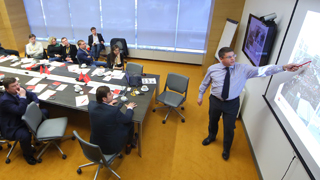
Sociální dialog
Sociální dialog lze definovat jako vyjednávání, konzultace, společné akce, diskuse a sdílení informací mezi zaměstnavateli a zaměstnanci. Dobře fungující sociální dialog je klíčovým nástrojem pro formování pracovních podmínek, do něhož je zapojena řada různých aktérů na různých úrovních. Nachází rovnováhu mezi zájmy zaměstnanců a zaměstnavatelů a přispívá k hospodářské konkurenceschopnosti i sociální soudržnosti.
Politické diskuze na úrovni EU zdůrazňují, že především od krize v roce 2008 se objevily nové diskuze o sociální spravedlnosti, demokracii, kvalitě práce a nových modelech vztahů mezi sociálními partnery, což staví tradiční pracovněprávní vztahy a systémy sociálního dialogu před nové výzvy.
Třicet let po historickém zahájení evropského sociálního dialogu ve Val Duchesse v Bruselu Komise dala tomuto procesu nový impulz vyhlášením nového začátku pro sociální dialog na akci na vysoké úrovni konané 5. března 2015, na níž se sešly organizace sociálních partnerů z celé Evropy. Evropský sociální dialog je nástrojem sociální politiky EU, který se přímo podílí na formování pracovněprávních předpisů a politik EU.
- Akce Evropské komise: Nový začátek pro sociální dialog
- Článek na blogu nadace Eurofound: Z Val Duchesse do Rigy: jak obnovit sociální dialog?
















